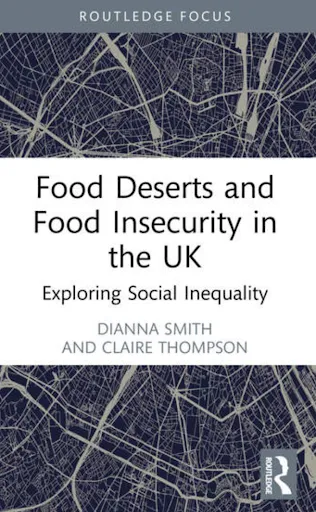A food desert is an area where peoples’ access to affordable, nutritious, and healthy food (particularly fresh fruits and vegetables) is limited or non-existent, primarily due to barriers to purchasing fresh food such as lack of affordable local stores and markets or lack of accessible transportation options to reach other purchasing options. The presence of food deserts is often correlated with the socio-economic status of residents – they are prevalent in ethnic minority, low-income communities lacking adequate access to transportation. In contrast, an area with greater access to affordable, nutritious, and healthy food may be described as a food oasis. Food deserts are often associated with urban areas and some activists and experts assert that food deserts are a symptom of systemic discrimination; see Food apartheid.
